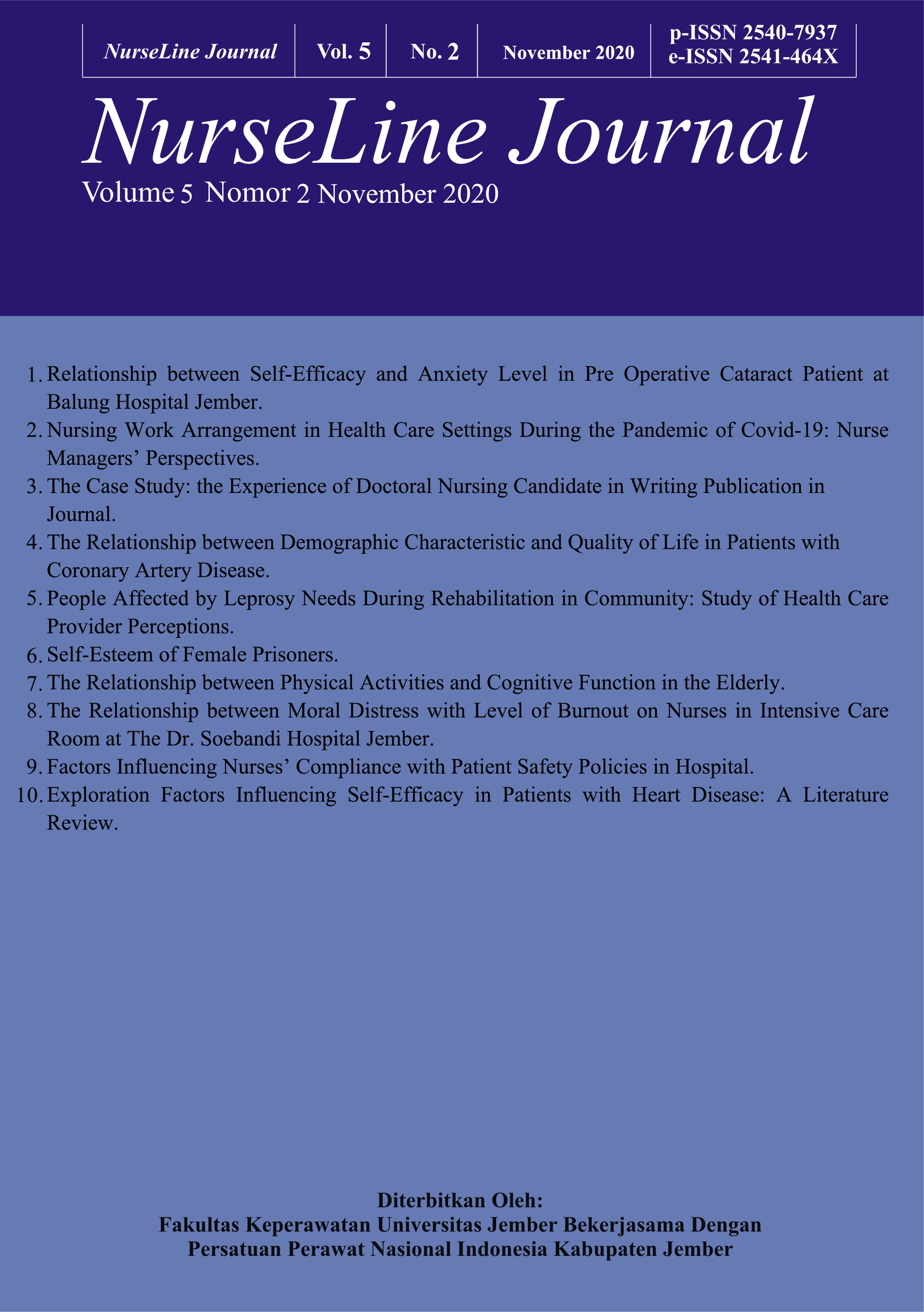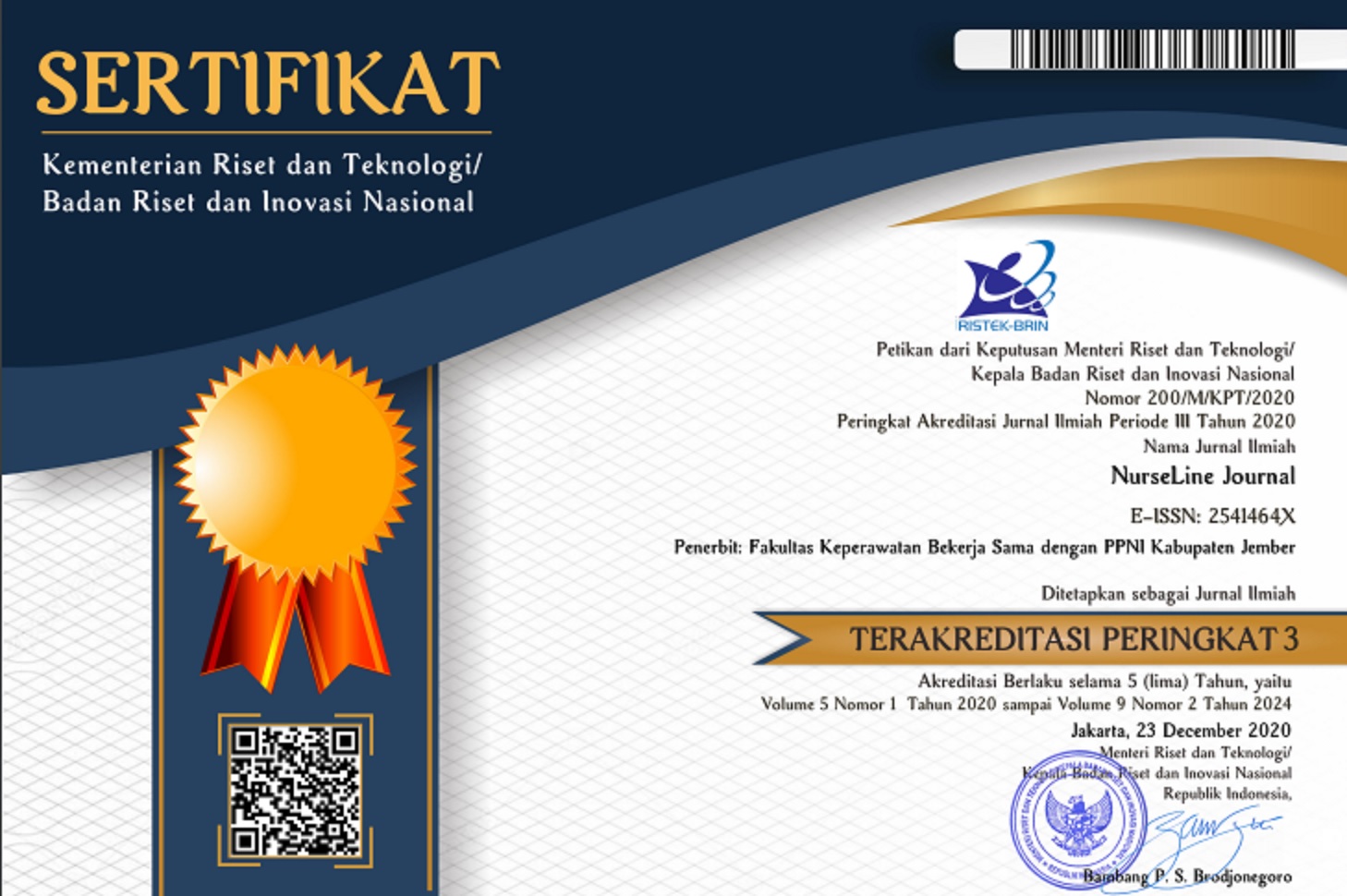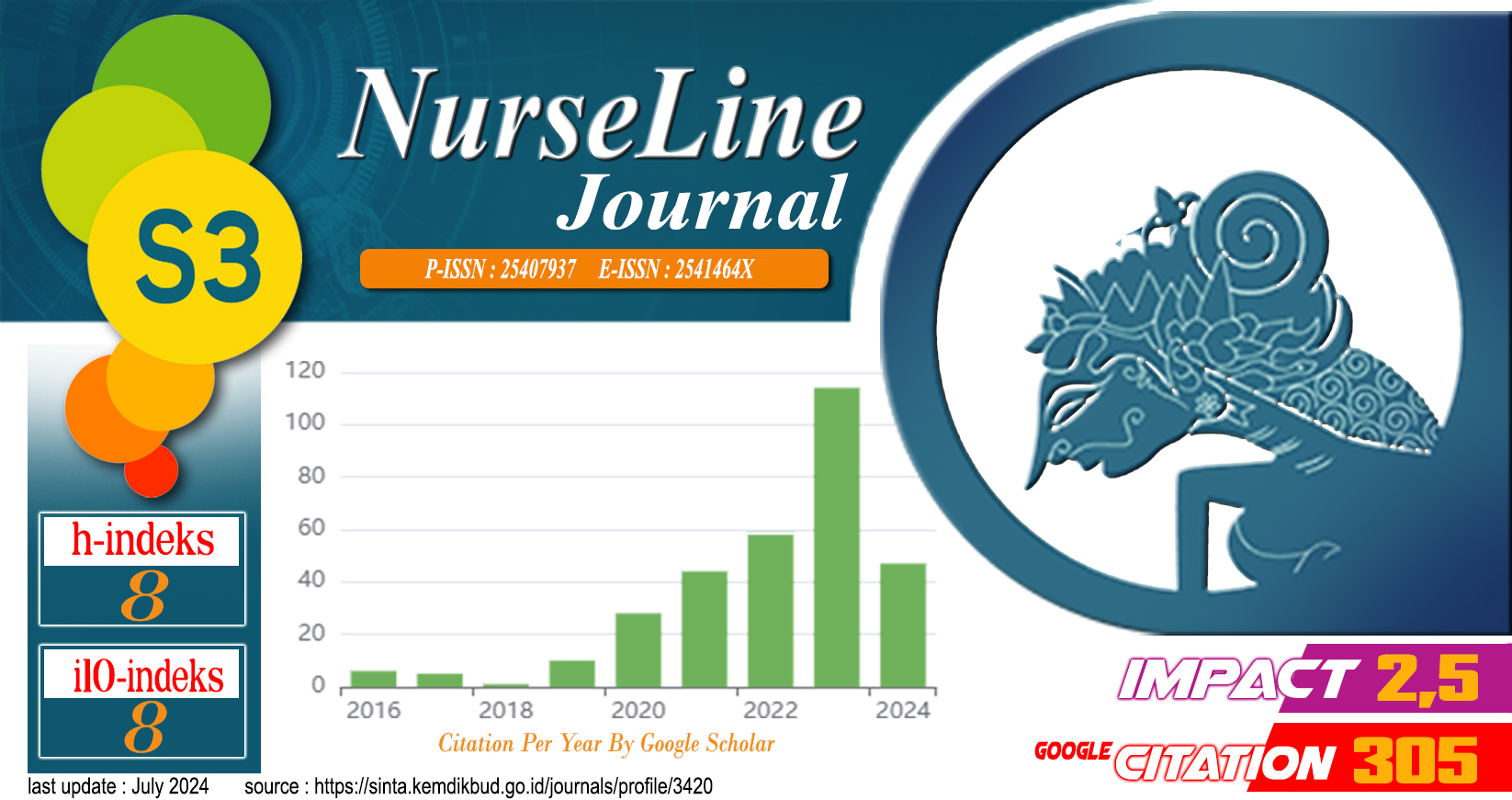The Experience of Doctoral Nursing Candidate in Writing Publication in Journal
Abstract
Graduates of PhD nursing programs are expected to produce complex genres of writing such as abstracts, research grants, manuscripts for publication, and dissertations. Research evidence shows a wide range of variability in writing among doctoral nursing students, and these variations may become more profound when exposed to complex genres. the objective of this study to explore the experience of PhD candidate in writing publication in high indexed journal. This case study used depth interview, semi structured question, Interview conducting in English, recorded voice used for transcribing data in 2 respondents from doctoral nursing candidate in Bangkok Thailand comes from Mahidol university and Chulalongkorn university. Participants’ criteria for this study are: 1) Doctoral candidate with minimum 1 publication in high indexed journal (Scopus/ ISI Thompson) 2) Doctoral nursing students that study in Thailand 3) Pass Qualifying Exam. Data analysis used modification Benner’s methods use in this study. This study exposing three themes. Theme 1: Strategies for publish. Theme 2: Support for publishing journal. Theme 3: two ways Communication with journal editors and public. Introduce scholarly writing at the undergraduate level and reinforce across the nursing education continuum, provide students with examples of quality scholarly writing, encourage student to connect with writing mentors (peers, colleagues, family, editor, faculty) are main recommendation for postgraduate student for increasing high level publication of nursing students.
References
Barritt, L., Beekman, T., Bleeker, H., & Mulderij, K., . . (1984). Analyzing phenomenological descriptions. . Phenomenology and Pedagogy., 2 (1), 1–17.
Caffarella, R. S., & Barnett, B. G. (2000). Teaching Doctoral Students to Become Scholarly Writers: The importance of giving and receiving critiques. Studies in Higher Education, 25(1), 39-52. doi:10.1080/030750700116000
Cohen, M. A., Kahn, D. L., & Steeves, R. H. (2000). Hermeneutic Phenomenological Research: A Practice Guide for Nurse Researchers. Thousand Oaks, CA: Sage,.
Cuthbert, D., Spark, C., & Burke, E. (2009). Disciplining writing: The case for multi‐disciplinary writing groups to support writing for publication by higher degree by research candidates in the humanities, arts and social sciences. Higher Education Research & Development, 28(2), 137-149.
Francis, K., Mills, J., Chapman, Y., & Birks, M. (2009). Doctoral dissertations by publication: Building scholarly capacity whilst advancing new knowledge in the discipline of nursing. International Journal of Doctoral Studies, 4, 97-106.
Gazza, E. A., & Hunker, D. F. (2012). Facilitating scholarly writer development: The writing scaffold. Paper presented at the Nursing forum.
Gazza, E. A., Shellenbarger, T., & Hunker, D. F. (2013). Developing as a scholarly writer: The experience of students enrolled in a PhD in nursing program in the United States. Journal Nurse Education Today, 33(3), 268-274. Retrieved from https://ac.els-cdn.com/S0260691712001244/1-s2.0-S0260691712001244-main.pdf?_tid=10fdaccf-edaa-466a-bde2-272b4002084e&acdnat=1550207903_ca3429dbff95a81aa552b76a91fe0a44
Graves, J. M., Postma, J., Katz, J. R., Kehoe, L., Swalling, E., & Barbosa-Leiker, C. (2018). A National Survey Examining Manuscript Dissertation Formats Among Nursing PhD Programs in the United States. J Nurs Scholarsh, 50(3), 314-323. doi:10.1111/jnu.12374
Huang, J. C. (2010). Publishing and learning writing for publication in English: Perspectives of NNES PhD students in science. Journal of English for Academic Purposes, 9(1), 33-44.
Kamler, B. (2008). Rethinking doctoral publication practices: Writing from and beyond the thesis. Studies in Higher Education, 33(3), 283-294.
Nygaard, L. P. (2017). Publishing and perishing: an academic literacies framework for investigating research productivity. Studies in Higher Education, 42(3), 519-532.
Page-Adams, D., Cheng, L.-C., Gogineni, A., & Shen, C.-Y. (1995). Establishing a group to encourage writing for publication among doctoral students. Journal of Social Work Education, 31(3), 402-407.
Petty, N., Cross, V., & Stew, G. (2012). Professional doctorate level study: the experience of health professional practitioners in their first year. Journal Work Based Learning e-Journal, 2(2).
Pickering, C., Grignon, J., Steven, R., Guitart, D., & Byrne, J. (2015). Publishing not perishing: how research students transition from novice to knowledgeable using systematic quantitative literature reviews. Studies in Higher Education, 40(10), 1756-1769.
Shellenbarger, T., Hunker, D. F., & Gazza, E. A. (2015). Understanding the scholarly writing development of nurses enrolled in US clinical doctoral programs. Paper presented at the Nursing forum.
Shirey, M. R. (2013). Building scholarly writing capacity in the doctor of nursing practice program. J Prof Nurs, 29(3), 137-147. doi:10.1016/j.profnurs.2012.04.019
Smith, D. G., Jr., & Delmore, B. (2007). Three key components to successfully completing a nursing doctoral program. J Contin Educ Nurs, 38(2), 76-82.
Tyndall, D. E., Flinchbaugh, K. B., Caswell, N. I., & Scott, E. S. (2019). Threshold Concepts in Doctoral Education: A Framework for Writing Development in Novice Nurse Scientists. Nurse Educ, 44(1), 38-42. doi:10.1097/nne.0000000000000535

This work is licensed under a Creative Commons Attribution-ShareAlike 4.0 International License.
















